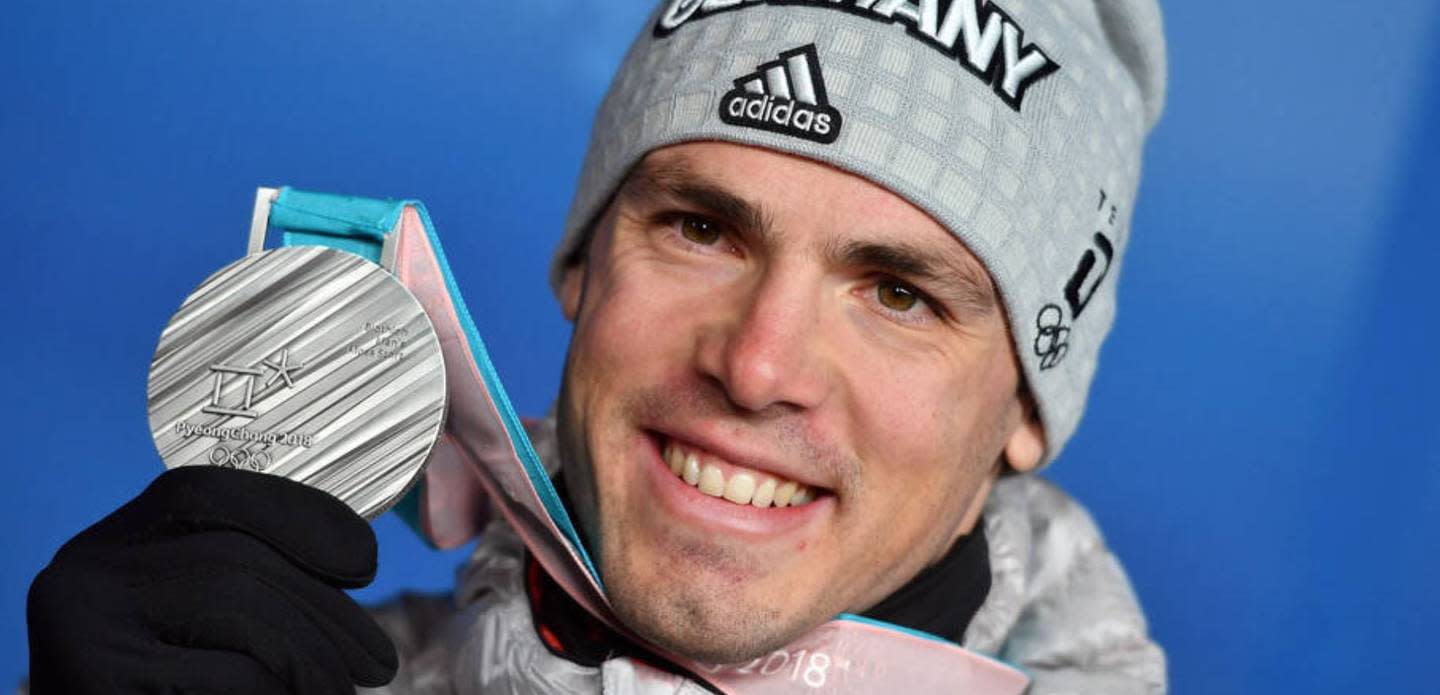He won four world titles, 18 World Cup victories and three Olympic medals.
Simon Schempp was one of the best German biathletes for years – at the World Cup in Pokljuka, which begins next Wednesday, he is now just a spectator who is excited about his girlfriend Franziska Preuss and the other former teammates (Biathlon World Cup from February 8th: all races in LIVETICKER).
The 32-year-old retired at the end of January after having failed to live up to his own standards for some time. in the SPORT1-Interview Schempp explains how his idea of resignation has matured, talks about his respect for the new life, the German World Cup chances, the coming to terms with the cover-up scandal in the world association – and joys and sorrows with Facebook and Co.
SPORT1: Mr. Schempp, According to your own statements, you ended your career because “you could no longer be the biathlete I was for a long time”. At what moment did you notice that?
Schempp: Difficult to name a key moment. The resignation is a decision that has matured over months through the course of my season. After last year I thought: I’m not finished yet, I can do it again, I was in a positive mood. But then I noticed that the necessary body awareness just didn’t work, that it wasn’t going in the right direction. So the thought then solidified step by step. Nevertheless, I was grateful that I still got the chance for the home World Cup in Oberhof.
SPORT1:Where you could not recommend yourself for further nominations with a 58th and 45th place.
Schempp: I went there with the thought: If it works, I can be happy. And if not, then I have another confirmation for my decision. And that’s exactly what I got. There is nothing worse after such a decision than endless pondering whether it was really the right one. That’s why it was important to me to give myself a lot of time and think carefully about everything until it really felt right.
Simon Schempp: “Should have had a different feeling”
SPORT1: What should have happened for your decision to have been different?
Schempp: A different feeling should have come back, a feeling of being able to cope with stress, a feeling of being able to train the way I could at my best times and making progress in the right direction. I wanted to see myself at some point. But I haven’t reached him.
Test DAZN for free and experience sports highlights live & on demand | DISPLAY
SPORT1: Which moments in your career have stuck you the most?
Schempp: I would highlight three. Number 1: my first World Cup victory. It’s just a very big milestone. It triggers a lot of emotions to achieve this long-sought success. Number 2: the gold medal with the relay at the 2015 World Championships in Kontiolahti, where I was the final runner. To cross the finish line with the German flag over your shoulder – that was a childhood dream that came true. And it was even nicer to be able to share this moment with three colleagues. Number 3: the world title in the mass start of Hochfilzen 2017. To win this single title: A huge burden has fallen from me after I had not been asked about anything else for a long time.
SPORT1: What is the new life of Simon Schempp, the biathlon retiree, like?
Schempp: It is definitely exciting. You have to rearrange yourself and see where the journey is headed. And the journey has only just begun. But there is a plan – and it was important to me to have it in mind before I decided to retire.
SPORT1: Boris Becker once said that it is hard never again to be able to do something as good as your sport. Is that a thought that also scares you?
Schempp: Yes, I have respect for that thought, no question. I was an expert in my field, I knew what I was doing and what was important, and I was comfortable with it. This is over now and something completely new is beginning. But on the other hand, I also take something with me into my new life through sport: I now know how much I can get involved, how much I am willing to invest in something that I like. That calms me down again.
Hope for the Biathlon World Cup in Pokljuka
SPORT1: What do you trust your former teammates at the World Cup in Pokljuka?
Schempp: The competition for the medals is certainly great, no question about it. But I think we can also expect something and be successful. In the relays, the German teams are always candidates for a medal if everyone performs well. But something is also possible in the individual competitions. I’m with Franzi (Franziska Preuß, editor’s note) very optimistic, also with Denise Herrmann. The rather simple shooting range in Pokljuka suits you. Arnd Peiffer is a candidate who can always come a long way. Erik (Lesser, Anm. d. Red.) has often presented itself very strongly, especially at the season highlights. Benedikt Doll has recently shown an upward trend and can also benefit from the good conditions at the shooting range.
SPORT1: The top German biathletes Arnd Peiffer, Benedikt Doll and Erik Lesser are all over 30, the youngest in the World Cup team are Philipp Horn and Lucas Fratzscher at 26. Why is there such a gap behind them?
Schempp: You can now see the effects of things that obviously didn’t run smoothly a few years ago in the youth work. For too long no young talent has really made it into the World Cup team. One who was already able to achieve good results at 20, 21. The goal of good youth work must be to get the boys so far at an early age that they can survive in the World Cup under the tough pressure to perform. From my point of view, a few years later it is usually too late to achieve consistent top performance. Against the background of this, one was sometimes too wasteful with the resource of time, one or two years passed in which one would have worked better towards the goal instead.
“It’s easy to let go of frustration online”
SPORT1: Horn was recently in focus when it fell victim to harsh criticism on social media – which in turn infuriated Erik Lesser. Has something got out of hand for you?
Schempp: Let me put it this way: it was certainly not constructive criticism on the Internet. Don’t get it wrong: As an athlete, you have to live with criticism, and what’s more: dealing with it is part of it if you want to develop yourself further. It is now one of the requirements of professional sport to deal with what is happening on social media. We also benefit from the fact that what we do moves people, and that is an expression of that. But it just has its downsides. It’s easy to let go of frustration online, even more so in anonymity – although a footballer has to endure a lot more. It is a pity here and there when things are written that you would not say to the person’s face. For me, this is a golden rule of conduct that I would always adhere to.
SPORT1: A topic this week has employed her previous teammate Arnd Peiffer, among others, the report was over the past doping cover-up machinations in the world association IBU. How much do such revelations shake your self-image as an athlete?
Schempp: It was a huge scandal, no question about it, and it’s bad that something like this happens in sport. The fact that the IBU, with its new leadership, is now working through the events in detail and sweeping them on their own doorstep, makes a very positive impression on me. That can only do good in the fight for credibility. Even as an athlete, it gives you a better feeling when you see that there is the will to do educational work in the interests of clean sport and to clear the table – even at the risk of writing negative headlines first. An end with horror is definitely better than a horror without end.
–


